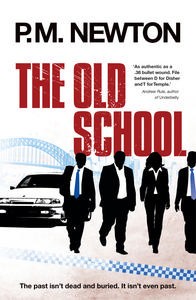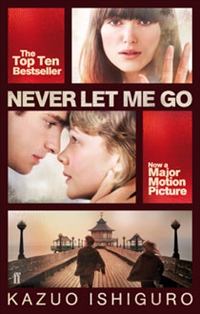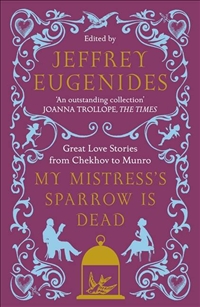 Last year I decided to dedicate myself to reading a short story a week for a year. That may not seem like much but, although I write short stories myself, they’re not my preferred reading matter and I felt guilty about it – how can I expect other people to read my stories when I don’t read theirs? – so I forced myself into a regime of at least a story a week (see the list of stories I read in 2010 under “Weekly Bread” link at right). After completing the year these are my reflections.
Last year I decided to dedicate myself to reading a short story a week for a year. That may not seem like much but, although I write short stories myself, they’re not my preferred reading matter and I felt guilty about it – how can I expect other people to read my stories when I don’t read theirs? – so I forced myself into a regime of at least a story a week (see the list of stories I read in 2010 under “Weekly Bread” link at right). After completing the year these are my reflections.
Short stories are hard to find
I had to go out of my way to find short stories to read – I wanted to read both classics and contemporary. I had some collections I’d already purchased such as UTS student anthologies and Best of Australian Stories. I also had the odd collection of short stories on my book shelves (and mostly I hadn’t read these). However, on the whole, I had to search out stories from other sources. I did buy a few collections, mostly anthologies, that I thought had a variety of stories of which I was bound to like some: Jeffrey Eugenides’ My Mistress’s Sparrow is Dead and A S Byatt’s Oxford Book of English Short Stories, were two. The local library was also another obvious place but, as I discovered, short story collections make up a miniscule portion of the fiction holdings, plus they are hard to find being shelved in with the novels. In the end I also scoured the secondhand bookstores for collections to buy.
Contemporary short stories are published in the literary journals but I find these too expensive to buy to read one or two stories. There are hardly any stories published in cheaper sources such as women’s magazines (remember the old days when Woman’s Day and Women’s Weekly regularly ran short stories?). The Big Issue is a notable exception with its regular annual fiction special.
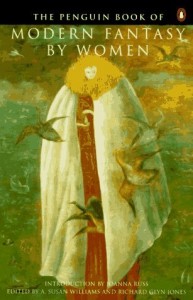 Genre stories are even rarer
Genre stories are even rarer
Literary stories have outlets in literary journals and the annual short story anthologies, however genre stories don’t appear to have a home. Surely there is as wide a readership for crime/speculative/thriller stories as there is for novels in these genres but this market isn’t catered for as far as I can see. When they do publish stories, genre writers publish them in their own collections – Joanne Harris’ Jigs and Reels, for instance. There is the odd big anthology in the library like the very enjoyable and high quality Penguin Book of Modern Fantasy by Women and Nightshade: 20th Century Ghost Stories, but there are not as many around as I would have expected.
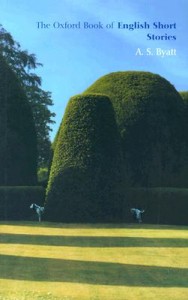 Beware the editors of collections
Beware the editors of collections
I thought I’d purchase couple of anthologies and that would give me a head start in having a large number of stories to read. It hadn’t occurred to me before to scrutinise the editors of anthologies – I’d just look at the table of contents and if there was a couple of writers I liked, I might buy the book – but I learnt my lesson when I bought the Oxford Book of Short Stories edited by A S Byatt. Like a lot of people I loved Possession but I’d forgotten how dry and intellectual I found Byatt’s other novels. After sampling a few of the stories in the Oxford book I realised I didn’t see eye to eye with Byatt – I just don’t like the pieces she selected. To compound matters, I experienced the same thing with Jeffrey Eugenides’ collection. It’s supposed to be a collection of love stories but it’s as though Eugenides thought he’d have the last laugh on any sap who bought the book on the strength of the subtitle “great love stories from Chekhov to Munro”. I’d say these are stories that have a relationship at their centre and that’s about all. It’s also American-centric. However it does include an Alice Munro story I’ve wanted to read for some time, the great “The Bear Came Over the Mountain”.
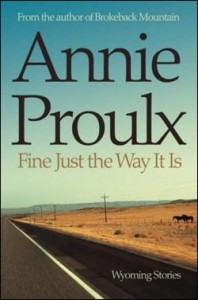 The best of the crop
The best of the crop
Reading a lot of short stories from a wide variety of sources concentrated my thoughts on what I actually like about a short story. Unlike a novel I don’t invest so much in a short story so I can afford to read something I might otherwise not read, which is a good thing. On the other hand, lack of investment means it’s easier to give up on one story and move on to another.
On the whole I like a story that is a story, ie has a story arc and enough substance to sink my teeth into. For this reason I thoroughly enjoyed many of the fantasy stories in The Penguin Book of Modern Fantasy by Women especially “The Lake of the Gone Forever” by Leigh Brackett and “The Ship who Sang” by Anne McCaffrey.
I also appreciate beautiful, intricate writing in a short story, writing that might be too rich or tiresome in a longer form. In this category I loved “Bridge of Sighs” by Gail Jones, “The Kiss” by Angela Carter, Ted Hughes’ “The Rain Horse” and Annie Proulx’s quite magnificent “Testament of the Donkey” from her collection Fine Just the Way It Is.
Then there are the uncomfortable, sad themes I might baulk at in a novel such as Peter Goldsworthy’s “Shooting the Dog” and Eva Hornung’s “Life Sentence”.
Stories that hang in my mind and I’m not sure why are: Barbara Hanrahan’s “Tottie Tippet” set in 19th century South Australia and with an unforgettable narrator, the unlikely-named but moving “The Slovenian Giantess” by Penelope Lively, a completely unsettling story by Joyce Cary about a father and his daughters called “Growing Up” that I was amazed to find included in a 1964 anthology meant for schools, and a similarly unnerving story “The Fog Day” by Amy Patterson set in Papua New Guinea.
It was an enlightening experience to read so many stories, and one I’m going to repeat in 2011.
 Please keep a look out for the anthology of ghost, fantasy and horror stories The Great Unknown edited by Angela Meyer and published by Spineless Wonders (and which includes my story ‘Navigating’). These stories were all inspired by the Twilight Zone television series and so are creepy, uncanny and scary. What more do you want for those cicacda-filled nights in the beach house over summer? In bookshops now or from Spineless Wonders. (or click the image below in the sidebar).
Please keep a look out for the anthology of ghost, fantasy and horror stories The Great Unknown edited by Angela Meyer and published by Spineless Wonders (and which includes my story ‘Navigating’). These stories were all inspired by the Twilight Zone television series and so are creepy, uncanny and scary. What more do you want for those cicacda-filled nights in the beach house over summer? In bookshops now or from Spineless Wonders. (or click the image below in the sidebar).


